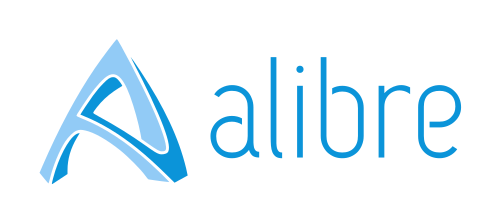JST
Alibre Super User
Normally, GMD is incapable of working with a part library, as it has no facility for library maintenance, etc. All parts are normally always editable.
BUT, if you notice, you cannot do any editing of a part downloaded from this site and opened directly in GMD. You have to save it locally first. Until you do, the part of assembly is shown, but all the editing commands are grayed out.
That being the case, presumably the file is marked "read-only". If so, then a library part could be so marked and it could not be edited.
But if there IS a way to edit it, then there is a problem, because it would be marked to be saved, and either the save would happen, or it would stall due to being un-savable.
Likewise, if it is ever saved locally, which as I understand it should not happen, then the part would be both cut of from the library, and also completely editable.
OK, so far, by test, a read-only file is NOT editable from within the assembly, you get a notice that it is "locked by some other process". In a part window, all selections are grayed out. You ARE allowed to change its color in an assembly, but not in a part window. Saving the assembly results in "no action" to the part regardless of the change in color in an assembly.
That being the case, it SHOULD be possible to maintain a part library in GMD, with the parts unchangeable in the normal way. All the pieces seem to be in place. I assume that the (defunct?) "vault" system used this normal DOS facility to do the work.
Of course, there is still the pesky issue of "part name = OS filename = descriptor = Keyshot material". That's a bit harder to get around.
And, to really do it right, the program and the library database should work together to positively prevent changes. Just using the OS file marker is not sufficient, the parts should be further protected, since it is easy enough to modify the "read only" marker.
That gives no real protection except against casual mistakes. But at least it DOES give that much protection, and might be usable.
A PCB program, as I understand them, keeps the files in a "library" format, and serves them to the program through a conversion routine that only goes one way. Only the library creation tool can make a file of that format, so "saves" have no effect. The "fornat" may be nothing more than an added header, and a change to the file type suffix, of course.
BUT, if you notice, you cannot do any editing of a part downloaded from this site and opened directly in GMD. You have to save it locally first. Until you do, the part of assembly is shown, but all the editing commands are grayed out.
That being the case, presumably the file is marked "read-only". If so, then a library part could be so marked and it could not be edited.
But if there IS a way to edit it, then there is a problem, because it would be marked to be saved, and either the save would happen, or it would stall due to being un-savable.
Likewise, if it is ever saved locally, which as I understand it should not happen, then the part would be both cut of from the library, and also completely editable.
OK, so far, by test, a read-only file is NOT editable from within the assembly, you get a notice that it is "locked by some other process". In a part window, all selections are grayed out. You ARE allowed to change its color in an assembly, but not in a part window. Saving the assembly results in "no action" to the part regardless of the change in color in an assembly.
That being the case, it SHOULD be possible to maintain a part library in GMD, with the parts unchangeable in the normal way. All the pieces seem to be in place. I assume that the (defunct?) "vault" system used this normal DOS facility to do the work.
Of course, there is still the pesky issue of "part name = OS filename = descriptor = Keyshot material". That's a bit harder to get around.
And, to really do it right, the program and the library database should work together to positively prevent changes. Just using the OS file marker is not sufficient, the parts should be further protected, since it is easy enough to modify the "read only" marker.
That gives no real protection except against casual mistakes. But at least it DOES give that much protection, and might be usable.
A PCB program, as I understand them, keeps the files in a "library" format, and serves them to the program through a conversion routine that only goes one way. Only the library creation tool can make a file of that format, so "saves" have no effect. The "fornat" may be nothing more than an added header, and a change to the file type suffix, of course.
